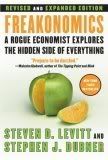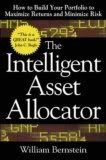Prosper vs S&P 500: Apples To Apples Time
Prosper sent out a marketing e-mail last night pitching the improved Prosper returns compared to the S&P500. Their blurb is below if you were somehow unlucky enough to miss out on it.
ZCommodore was all over their disclaimers:
First, they are comparing a year of returns on Prosper with 2 years on the S&P 500. The dates are different as well. I don't know what the returns looked like for the most recent year of the S&P 500 but I suspect they'd be different if they chose the same year.
Ok, fair's fair. Lets get the S&P 500 vs Prosper for the same dates. To be extremely fair, we'll use Prosper's dates.
Rate of return shown is the average net annual return on Prosper loans originated between 7/22/06 and 7/22/07 to borrowers with AA credit grades who have 0 delinquencies and 0 to 2 credit inquiries on the their credit record, as of 8/23/07. For more information, go to http://www.prosper.com/lend/performance.aspx.
The S&P 500 index was 1240.49 on 7/21/06 (as close as Google will get me), and close at 1462.50 on 8/23/07. That's a 17.9% return over 13 months, pretty respectable and corresponding to an approximately 16.5% annualized return. Oops.
And then there's those darn taxes. If I had invested in the S&P 500 via an ETF or Spider and sold on the 23rd, I'd be paying capital gains tax rates of 15% this year versus Prosper which requires me to pay my regular going tax rate of 25% every year that I receive interest income. So, lets run the numbers, shall we.
| S&P 500 | Prosper | |
| Initial Investment | $10,000 | $10,000 |
| Value After 13 Months | $11,789 | $10,997 |
| Gains | $1,789 | $997 |
| Tax Rate | 15% | 25% |
| Taxes | $268 | $249 |
| Post-Tax Gains | $1521 | $748 |
| After Tax Returns | 14.04% | 6.9% |







7 comments:
Good work here. I think they might have done more harm that good with this kind of press release.
They should be playing up the angle of the average AA, A, and B loans make over 9%. If you are wise on who you offer money to you have the opportunity to outperform that.
It's hard to impossible to predict stocks since unavailable news can impact the prices. However, with Prosper loans, you know more or less exactly what you are getting into. People with debt to income ratios of 10% are going to perform better on average than those with 60% debt to income ratios.
If the average includes those loans with bad DTI ratios and the like, then you should be able to do better with more stringent criteria.
Thanks.
I think Prosper will do better in the marketing if they show good (though not amazing) returns that do not track the stock market (for diversified investment portfolios) and if they can show lower volatility. It's time for me to dust off my stats books to figure out how to do it.
Mike
It was kind of weird analysis on their part - they took 13 months of Prosper loans to generate an annual return, but averaged the S&P 500 over a different 2 year time frame.
I think this kind of marketing might backfire in the long run. While I still remain fairly agnostic towards to prosper, I think there's alot the company needs to do to both attract the right type of investors and the right type of borrowers. The fact is it shouldn't be competing for dollars against stock indexes (I don't think it can win), it should be competing against what people are putting away into fixed income. If anything I think it might make sense for someone to securitize prosper loans... But there's probably not enough volume in that...
matt:
Prosper drew themselves into a bit of a box.
1) They didn't have extended credit info before about April, 06
2) You want the loans to age at least 1 month so that they're paying out (hence the 13 months instead of 12)
3) You want "clean" numbers that inverters are used to (i.e. 1 or 2 year)
4) The S&P 500 went on a tear over the last year.
Given that box, I think they spent some time picking the best possible terms to craft the blurb. It helped their cause that the S&P was pretty flat for the first year (2005-2006) - that lowered it's average return in their stats.
dong:
I can't find the link at the moment, but some good arguments have been made for Prosper as a complementary investment to the stock market because it has less volatility and should have a low correlation with stock market swings. I would argue that this is still too risky to supplant a fixed-income component of an investment portfolio. A few more years of stats, and then I'd consider the idea, but not now.
all:
Overall, I felt dirty (somehow) after having read it. I hope they do better in the future.
Mike
And yet if you extend both prosper and S&P500 to the two year period prosper does come out ahead. Prosper's 2 year (with given criteria restrictions) is over 9% and S&P is under 8%.
Technically, Prosper can't have a two-year return yet. Even the insiders at Prosper didn't start lending until October 2005, and the public couldn't invest until February 2006.
Post a Comment